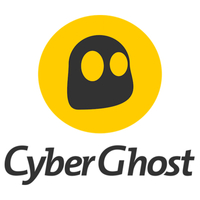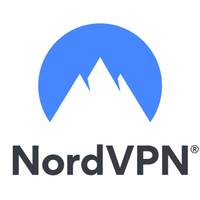At its most basic level, having access to more VPN servers means you’ll have more choice in which server you connect to. In turn, you’re more likely to find a quick, stable connection. Like so many things in life, though, it’s not quite that simple…
Server number vs server locations
Right out the gate, if you’re not hugely interested in the science behind it, you can skip down to our top picks for VPN server providers by following this link (opens in new tab). When making your decision, one of the most important things to pay attention to is the number of VPN server locations a provider offers. This is just as important as the sheer number of servers – if a provider has a relatively narrow network, connecting to or from more ‘unusual’ locations could result in a severe drop in connection speed. This is often the case with smaller, more Europe- and US-focused VPNs, with users in Asia or Africa having to connect to servers several countries away. A balance does need to be found, though. Providers with a huge amount of locations and just a few servers in each (HideMyAss: 1,000+ servers in 190+ countries) can end up performing poorly compared to VPNs with a narrower network with plenty of servers in each location (Surfshark: 3,200+ servers in 65+ countries). In that comparison, HMA proves to be a poor choice as a streaming VPN, while Surfshark is one of the best – not to mention one of the cheapest VPN services. What you really want is a good selection of well-populated locations. This should make sure no single server becomes overloaded with users or is detected by streaming providers before another can take its place.
VPN servers for P2P and streaming
As you might have guessed, for those using their service as a streaming or torrenting VPN, server number and location is going to be important. For users who just want to stay protected during regular browsing it won’t be such a huge selling point, but if you want to spoof your location (opens in new tab), a wide network will be very useful. Streaming sites serve different libraries to different countries, and people on holiday and business trips (or those who just want to explore the world’s content) can virtually relocate themselves to access different shows. That might be because you can’t access your favorite series when on a trip to Italy, or you might just want to see what Brits can watch that you can’t. Either way, a wider VPN network usually means more streaming options. For torrenters, some VPNs don’t support P2P on every server. Here, you’ve got two choices. For ease of use, you could go with a VPN that allows torrenting on any server like ExpressVPN, or otherwise you can pick a service like NordVPN that has a selection of dedicated P2P servers that are searchable in the app. Either way, you’ll have a wide range of VPN server options for torrenting.
How we’ve chosen the best VPN server providers
The following five services provide what we think are the best combinations of VPN server locations alongside sheer strength in numbers. Ranking first is ExpressVPN (opens in new tab) which, while it doesn’t have the absolute maximum number of servers, has the widest network on the list with enough servers to populate them. And, if we’re honest, after about 3,000 or so servers there’s little true increase in performance, and the quality of the service is more down to efficient server maintenance and excellent apps – both of which ExpressVPN has kept on top of for years, now. However, if you want to look through the VPN server titans on the market today, just scroll down. You’ll read what we love about these behemoths, and why they might be a great fit for you.
The best VPN server providers
If you’re looking for a super-reliable VPN server network spread all over the world, ExpressVPN should be your first choice. Whether you’re in Boston, Birmingham or Beijing you’ll have a bank of fast servers nearby, and no matter where you are you’ll be able to get protected and browse on a quick, safe connection. ExpressVPN’s vast server network isn’t the only reason it tops this list, though. For those who are looking to stream or torrent it’s the perfect tool, and no matter what you’re doing you’ll be covered by its stringent and audited privacy policy. While it works straight out the box, Express also gives users some really useful in-depth tools, including the option to switch protocols, activate a kill switch and turn on split tunneling. Also, you’ll be protected by Perfect Forward Secrecy which uses a new key every time you log on and each hour thereafter. But, really, ExpessVPN’s usability is thanks to its extensive network of well-maintained and secure servers all over the world – not only will you be able to get a great connection in any location, but you can also browse freely in the knowledge that your data is being kept safe. If we had any complaint about ExpressVPN, it’d be that the limit of five simultaneous connections isn’t the most generous, but that’s not a huge limitation (and many other providers offer the same). Overall, if you want access to the best VPN server network on the market, your best option is ExpressVPN. CyberGhost has earned its second-place spot thanks to its genuinely huge number of VPN servers. Almost no other provider comes close to its 7,500+ servers, and with that comes an inherent reliability and variety. The provider is also an excellent choice for those who love streaming and torrenting, as the apps have built-in filters that can help users select the best servers for P2P or, for example, US Netflix. This is something we’d love to see in other VPNs as well. However, while CyberGhost does have twice as many servers, it doesn’t cover as many countries as ExpressVPN (although still loads compared to any other service), and that’s why it’s placing second and not first. Also, in our testing we found no tangible improvement in performance from having such a huge network, indicating that once a provider has enough to thoroughly cover the globe, increasing its server number yields swiftly diminishing returns. That’s not to say CyberGhost isn’t a good option though, and for those looking for a fairly cheap, easy-to-use VPN for streaming and torrenting that has servers in pretty much every country you could want, it’s a great choice. Sign up now on the CyberGhost website (opens in new tab) Security giant NordVPN is another VPN provider that offers a huge number of servers, although its network is considerably narrower than both ExpressVPN and CyberGhost. In practice that hasn’t been an issue for us, but for those in farther-flung locations it’ll be worth checking if you’ll have a decent server nearby. Nord makes up for this with a very security-focused user experience, and while that server hack in 2019 does leave a bad taste, the provider has been independently audited twice to regain the trust of its users and prove that it’s as secure as it claims. For those looking for a useful streaming VPN it’s also a great choice, as it can unblock pretty much every service around – from Netflix to BBC iPlayer and Hulu. And, if that’s not enough, it’s also got dedicated P2P servers for those looking to torrent. NordVPN is by no means let down by its number of locations (59), but it can’t quite hit the heady heights of ExpressVPN and CyberGhost when it comes to server spread. However, it’s still one of the very best services on the market today, and we highly recommend it. Sign up now on NordVPN’s website (opens in new tab) Private Internet Access (PIA) is part of the old guard, and has been running for a decade since 2010. Until September 2020 it only boasted around 2,000 servers in 47 countries, but seemingly out of nowhere the provider has launched its ’next gen’ server network, boosting that to a previously unheard-of 28,000+. Granted, over 14,000 of those are in the US (in 14 different cities), but as one of the biggest markets for VPNs, we can see why. Ideal for torrenters, every server is P2P-ready, and strong encryption will keep you safe while you’re connected, too. An interesting feature is ‘PIACTL’, which is a command line interface users can use to control PIA through scripts. While certainly not for the newbie, this allows deep control of the app that pretty much no other commercial VPN offers. PIA’s ten simultaneous connections is generous, and considering the bargain price that can be had on its longer contracts, it offers excellent value for money. While it can’t match the leaders in the field, for those that want a configurable VPN with the absolute maximum number of servers, PIA is a great choice. Sign up now on PIA’s website (opens in new tab) Hotspot Shield is a very popular VPN, and it’s not hard to see why. Its large VPN server network and the blazing speeds enabled by its Catapult Hydra protocol mean that its a very usable option for those looking for protection without any slow-down. Its Catapult protocol allows the VPN to reach incredible connection speeds but, as explored in our fast VPN rundown, to see any discernible effect you’ll need an ultra-fast internet connection to match. While its VPN server network is wide and reliable, it’s not further up this list due to its questionable logging policy – while it’s probably fine for those just looking to stream overseas Netflix, users seeking ultimate security may want to investigate the policy deeper, or pick a provider that boasts an audited no-logging policy like ExpressVPN or NordVPN. However, Hotspot Shield is still an excellent service that does its job very well, plus it also offers a limited free VPN that can give you a taste before you sign up with real money. Sign up now on Hotspot Shield’s website (opens in new tab) Instead, we’d recommend either ExpressVPN (opens in new tab) or NordVPN (opens in new tab). Both have far fewer servers than PIA – 3,000+ and 5,000+ respectively – but in practice that’s more than enough, and we’d suggest you make your decision on other factors like connection speed, streaming support, overall privacy and security, and general usability. Having a large number of servers means that each one will have fewer users, ensuring better speeds, and the wider the variety of IP addresses, the more likely it is that you’ll be able to watch Netflix successfully. Also, the number of VPN server locations is useful, too. With more locations, no matter where you are in the world, you’ll be able to connect to a closer server, ensuring better speeds. However, you’ll want a happy medium – just a few servers spread over tons of locations will result in poor speeds, and thousands of servers in just a few countries will be limiting in terms of content available.








